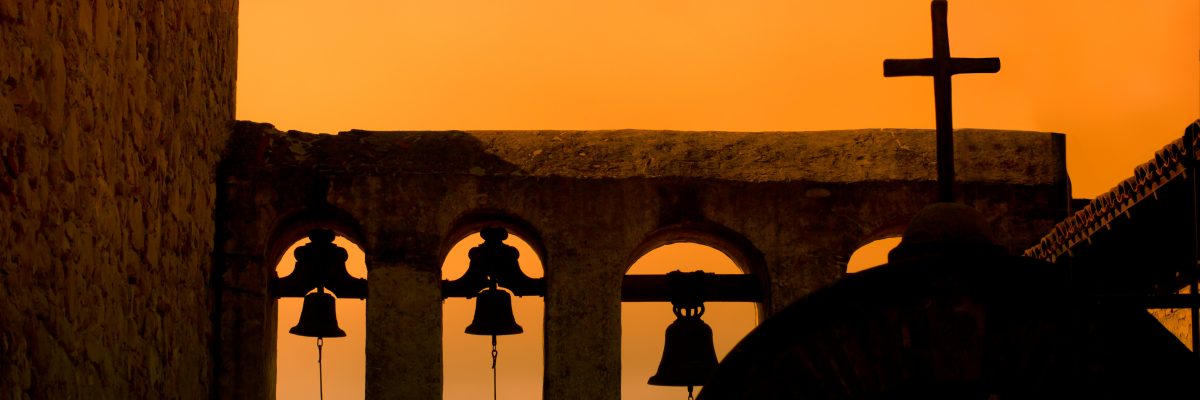
This past week, a young American missionary named John Allen Chau was killed while trying to evangelize an isolated tribe on North Sentinel Island. Lying roughly 1,000 miles off the eastern coast of India, the island is home to one of the world’s last “lost tribes,” or people who do not have contact with modern civilization. Chau had visited the island chain several times before and knew about the Indian government’s prohibition against visiting the island and its inhabitant’s hostility towards outsiders (in 2006 a pair of fishermen were killed when their boat drifted too close to the island’s shore).
But Chau was undeterred in his desire to spread the gospel. He wrote in his journal, “You guys might think I’m crazy in all this, but I think it’s worth it to declare Jesus to these people.” Even though the island’s inhabitants greeted Chau by shooting an arrow through the Bible he was carrying, he was determined to stay. The fishermen who brought Chau to the island later saw Chau’s body being dragged across the beach with a rope around his neck.
Although even believers might question if it was prudent for Chau to evangelize people so unwilling to receive him, they would probably agree that at least his heart was in the right place. Chau can even be said to have imitated St. Paul, who returned to Antioch in spite of nearly being stoned in order to preach the gospel and reassure the Christians who lived there that it is “through many tribulations we must enter the kingdom of God” (Acts 14:22).
But some secular commenters saw Chau as a kind of persecutor who got what he deserved.
Ryu Sapeth wrote in the New Republic, “Chau represented a very contemporary kind of villain: wholly oblivious of his ingrained prejudices, a menace in his smiling condescension.” Janet Street-Porter accused Chau of “cultural imperialism,” and having committed the “worse kinds of environmental pollution: aggressive pushing of faith to another culture.” (She did not use the adjective “aggressive” to describe the people who pumped an unarmed man full of arrows and paraded his corpse around like a trophy.)
The main problem with critics like these is that they employ a self-defeating cultural relativism. They claim it is wrong to say, “My culture is better than your culture, so you should adopt my culture,” yet, these same writers believe that their secular, Ivy-League, relativistic culture is superior to the Evangelical culture at Oral Roberts University where Chau studied. They also have no problem spreading their own gospel of legal abortion, contraception, homosexuality, and radical individualism to people and cultures that “need it” in places like Africa, Asia, and Midwestern America. African author Obianuju Ekeocha recently penned a book decrying this hypocrisy, appropriately titled, Target Africa: Ideological Neo-colonialism of the Twenty-first Century.
These critics also assume that evangelism is identical to imperialism that tries to destroy every element of one culture in order to replace it with another. But a group of people can accept the gospel without giving up historic customs that do not contradict it. The Second Vatican Council said, “Variety within the Church in no way harms its unity; rather it manifests it, for it is the mind of the Catholic Church that each individual Church or Rite should retain its traditions whole and entire” (Orientalium Ecclesiarum, 2).
What can’t be rejected, however, is the truth that our merely human efforts cannot merit heaven and so salvation consists in receiving God’s grace through baptism (CCC 1257). Although salvation is possible for those who have never heard of Jesus (1260), sin makes salvation difficult for people in all times and cultures. If we worry about native people’s bodies dying from Western diseases they might come into contact with (a risk that we can manage with modern medicine), then shouldn’t we be more concerned about their souls dying from the universal malady of sin that finds its way into every human heart regardless of the time, place, or culture in which it resides?
A number of editorials about Chau describe the Sentinelese as being “untainted” or “free” from the influences of modern civilization. Street-Porter glowingly described indigenous tribes “who still live close to nature, untainted by the distractions and detritus of our western world.” New Zealand author Oscar Kightley wrote that tribes like the North Sentilese have JOMO, or the “Joy of Missing Out”:
They’ve successfully experienced the joy of missing out on what’s been going in the rest of the world for the past 60,000 years. On the one hand that means they’ve missed human achievements such as the internet, reggae, Shakespeare, hip-hop, and Jimi Hendrix. But because they’ve also skipped colonialism, racism, slavery, war from invading foreign powers, genocide, famine, and cyberbullying, one could easily argue they’re winning.
Such romanticized notions of indigenous cultures wrongly assume evils like war, racism, and slavery are Western anomalies that “infect” peaceful, native cultures. But as Lawrence Keeley shows in his book War Before Civilization, there is evidence that prehistoric people were actually more violent than modern people. They regularly engaged in wars with other tribes, enslaved and raped their enemies, and made no distinction in battle between warriors and non-combatants like women and children. Keeley calculates that if these tactics were used in twentieth-century conflicts there would have been two billion war-time deaths.
The gospel is not meant solely for people whose natural innocence has been destroyed by modern, Western evils. It’s meant for all people, regardless of culture, because people in every culture succumb to the temptation to do evil for personal gain.
Chau’s critics also assume that missionaries only bring with them useless religious doctrines that have no practical benefit and only serve to supplant equally valid native beliefs. Street-Porter quotes one missionary as saying, “It’s true we destroy certain things in cultures just as doctors must destroy certain things in a human body if a patient is to survive,” to which she replies, “Why can’t these zealots accept that some non-believers do not need the words of Jesus or plastic footballs?”
But Street-Porter and critics like her forget how missionaries have brought superior moral sensibilities to people that needed to abandon their abhorrent practices.
For example, the ancient Chinese practice of foot binding that involved crushing and disfiguring the feet of girls as young as four in order to achieve an ideal “lotus shape” persisted until the arrival of British colonizers in the nineteenth century. Even scholars who are critical of “Western imperialism” admit, “The presence of Western missionaries and colonialists in China led to an anti-footbinding movement, which gained exposure on a global scale.” Another example is Sati, or the practice of throwing a widow on her husband’s funeral pyre and burning her alive. Its abolition, according to Indian history professor, Ameeta Singh, “owes much to the efforts of the Christian missionaries.”
Modern critics, obsessed with spreading their own secular creed, can only see the task of preaching the gospel to the ends of the earth as intolerant, possibly racist, imperialism. But in truth, it’s something that Christians of all races and ethnicities have been doing for 2,000 years because they choose to take seriously the words of our Savior who said, “Go therefore and make disciples of all nations, baptizing them in the name of the Father and of the Son and of the Holy Spirit,teaching them to observe all that I have commanded you; and lo, I am with you always, to the close of the age” (Matt. 28:19).



